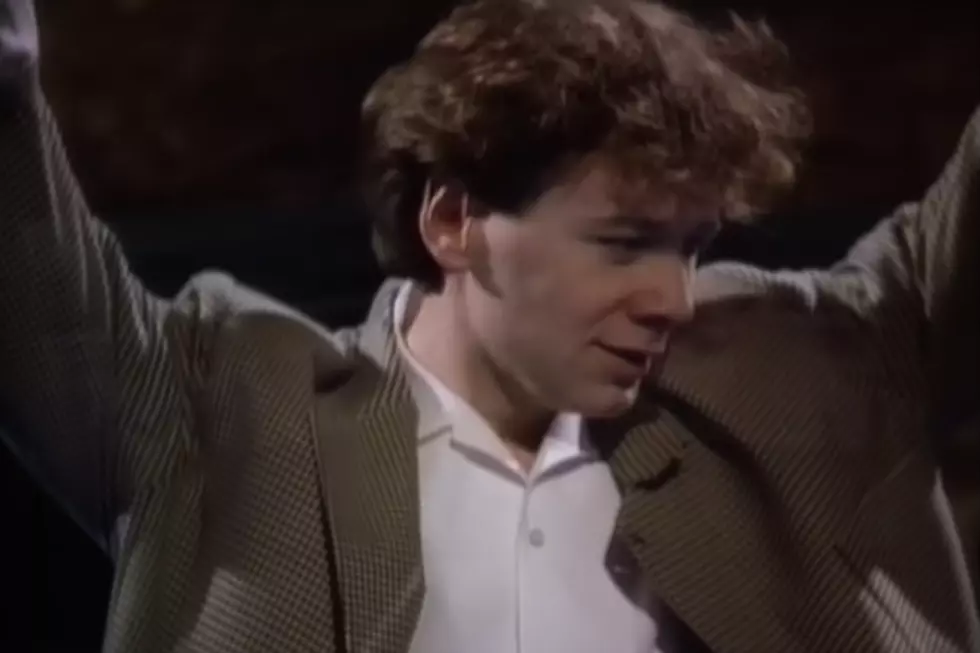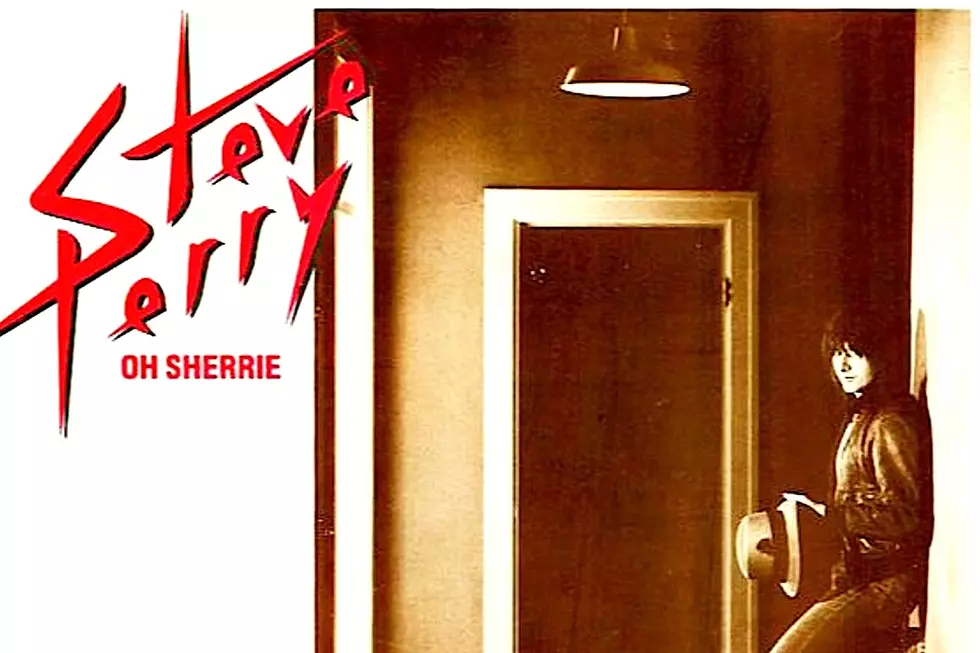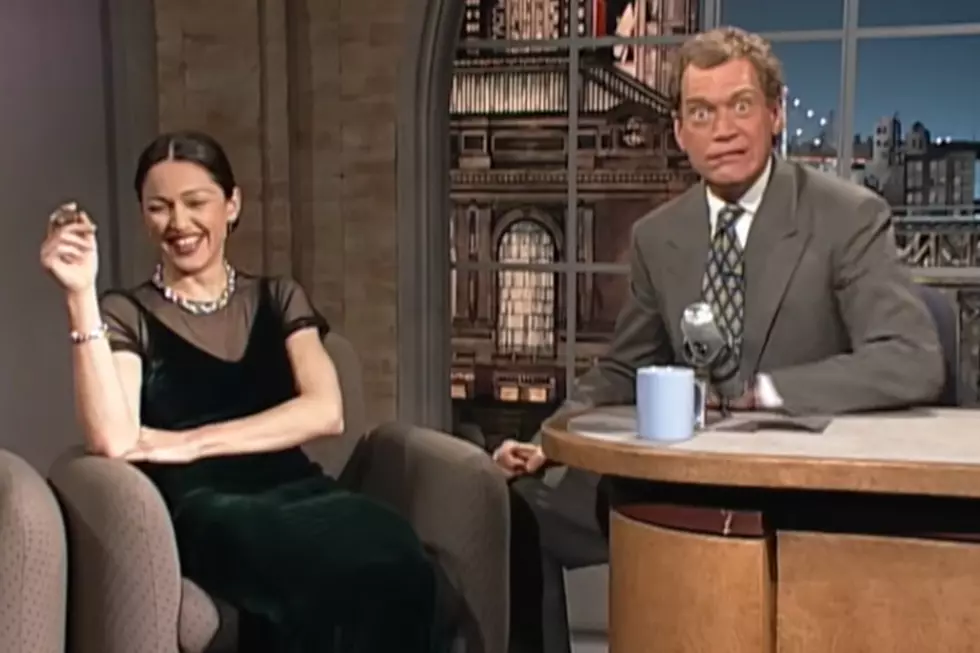
Why Simple Minds Almost Passed on ‘Don’t You (Forget About Me)’
Presented with the biggest hit they'd ever have, Simple Minds initially balked.
"We are Simple Minds; we don't do songs that sound like Simple Minds," frontman Jim Kerr remembered saying. "We are Simple Minds. We do our own songs."
They had built a respectable resume into the mid '80s. Simple Minds already had two platinum studio albums and six Top 40 singles – but that was in the U.K. They'd yet to appear on the Billboard singles chart, and no album had gotten any higher than No. 64 – with 1984's Sparkle in the Rain – in the U.S.
"Simple Minds were knocking on the door of the big league, had a few No. 1 albums, were going into the arenas – and that was happening all around the world apart from the States," Kerr told the BBC during an interview in 2018. "We tried. We'd spent a lot of money going into debt to tour there and kind of thought, 'This is not happening.' We weren't getting on radio, basically."
The question was whether "Don't You (Forget About Me)," a movie tune written by Keith Forsey and Steve Schiff, was the rocket that would launch Simple Minds into the U.S. market – or the stone that would sink them forever. Kerr, to put it mildly, was circumspect: "I'm more liable to write a line like 'do forget about me,'" he told Songfacts in 2015.
Forsey said he was specifically thinking of Simple Minds when he wrote the song while scoring The Breakfast Club – and that actually posed a problem. "Don't You (Forget About Me)," to their ears, sounded like somebody trying to sound like Simple Minds. So, the band politely declined.
Watch Simple Minds' 'Don't You (Forget About Me)' Video
Forsey shopped "Don't You (Forget About Me)" to Bryan Ferry, to Cy Curnin of the Fixx and to Billy Idol, the latter of whom Forsey was producing at the time. They all passed. So, Forsey gave it another shot with Simple Minds, and this time they reluctantly acquiesced.
"I think it was about six months between being approached and actually doing it – which is kind of ironic, given the success the thing went on to get," Kerr told the Morning Call in a 2018 interview. "We were young, we were brattish. And when they approached us, we said, 'Great, we got tons of songs.' And they said, 'No, we've got a song for you.' And that was, like, 'Hang on a minute. You know, we wrote our own songs — we don't do other people's songs.'"
Forsey's version of a Simple Minds-type track was only one facet of what they did, Kerr added. Simple Minds were worried about getting pigeonholed too.
"I mean, the thing with Simple Minds is that there's many Simple Minds within Simple Minds," Kerr told Stereogum in 2014. "There was definitely an electronic art-rock phase; a lot of people associate us with the big MTV-pop age. Other people you talk to and they say, 'Oh, Simple Minds are stadium rock.' I'll say, 'Hang on a minute, I think it can be all those things.' We have been all of those things."
Forsey, a big fan, refused to give up. If not for his persistence, "Don't You (Forget About Me)" might have slipped away forever. That means no key placement at the end of The Breakfast Club, no first-ever chart-topping Billboard single and no first-ever gold U.S. sales for Once Upon a Time, released later in 1985. Simple Minds might have remained what they were before this: a well-respected, but really only regionally popular Scottish band.
"It was presented in the wrong fashion," Kerr told Songfacts. "This cassette came our way. The song wasn't bad. It didn't resemble in any way the record that you know, but the melody was there, the words were there. It wasn't bad. But I've got to be honest, it didn't feel up to scratch with what we were working on of our own stuff. So, we turned it down a couple of times, and they kept coming back at us, the record company, the film company. And then once we met both the producer, Keith Forsey, and the director, John Hughes, and spoke to them, we then understood the context of it and were a lot more free to the idea of doing it."
Watch Simple Minds Perform at Live Aid
They spent about three hours working on the track in a North London studio, rearranging it and adding what became a sing-along favorite at the end. The intent had been to bang it out, then basically to forget about "Don't You (Forget About Me)." But Simple Minds felt like they were onto something, long before the single shipped on Feb. 20, 1985.
"We all kind of knew we'd created this thing that – we were all hoping everyone would go, 'It didn't work. That's it. Story's finished.'" Kerr told the BBC. "But by the end of the afternoon, we knew that 'Oh, God, we're in trouble here,' because this is the kind of thing that record company's going to love, radio will probably like – MTV, which had emerged, it was perfect for. All the things we started to envisage came to be. Along with that came Live Aid and this No. 1 success. None of it you could predict. None of it."
Simple Minds' next two singles reached the Billboard Top 10, after the soundtrack for The Breakfast Club soared to No. 17. They were even bigger back home, going from platinum to multi-platinum in the U.K. with Once Upon a Time, 1987's Live in the City of Light and 1989's Street Fighting Years. "Don't You (Forget About Me)" kicked off a career-best streak of 13 straight Top 20 U.K. singles.
"That was the unlikeliest thing, and you have to take the combustion between the song and the movie. Then MTV got all over it, which attached a few more steroids to it," Kerr told the Boston Herald in 2018. "That song has a real joy to it. It really announces itself whenever it comes on the radio. And I still think those 'la-la-las' at the end are brilliant."
Decades later, "Don't You (Forget About Me)" remained a touchstone moment in every band profile, an obligatory part of every interview and a set-list stalwart. In fact, Simple Minds often played it in a treasured spot at the end of their shows or as an encore. All of the song's original implications persisted, but Simple Minds made peace with them.
"You can still see how I'm a bit hesitant," Kerr told the BBC. "Don't get me wrong, we're not hesitant when we play it live. We play it with so much heart and soul, because the song has given so much pleasure to people. It'll always be an outsider. It didn't come from inside us.
"But that's fine – especially when the royalty check comes through," he added with a rueful laugh.
Simple Minds Are One of 30 Band Names Taken From Songs
More From Ultimate Classic Rock









